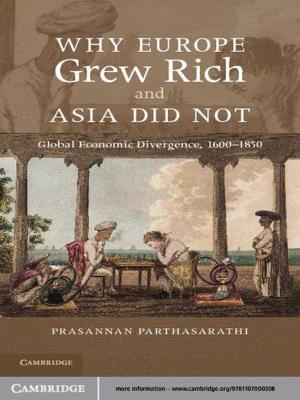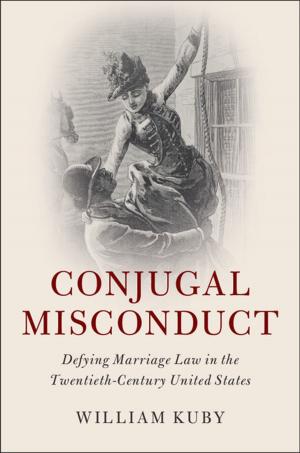The Prudential Carve-Out for Financial Services
Rationale and Practice in the GATS and Preferential Trade Agreements
Nonfiction, Reference & Language, Law, Commercial, International| Author: | Carlo Maria Cantore | ISBN: | 9781108244909 |
| Publisher: | Cambridge University Press | Publication: | May 31, 2018 |
| Imprint: | Cambridge University Press | Language: | English |
| Author: | Carlo Maria Cantore |
| ISBN: | 9781108244909 |
| Publisher: | Cambridge University Press |
| Publication: | May 31, 2018 |
| Imprint: | Cambridge University Press |
| Language: | English |
The World Trade Organization's General Agreement on Trade in Services (GATS) sets out a framework and rules for the liberalization of international trade in services. Paragraph 2(a) of the GATS Annex on Financial Services is generally known as the Prudential Carve-Out (PCO). Notwithstanding GATS obligations, it allows WTO Members to pursue prudential regulatory objectives. This book studies the GATS PCO in light of its negotiating history and economic rationale as well as PCOs in all preferential trade agreements notified to the WTO Secretariat up to the summer of 2017. The author clarifies the state of play of international cooperation on financial services regulation; provides a current understanding of the GATS PCO; analyses how PCOs are drafted in preferential trade agreements and, finally, he seeks to understand whether alternative approaches to the mainstream understanding of the PCO are possible and suggests options for reform.
The World Trade Organization's General Agreement on Trade in Services (GATS) sets out a framework and rules for the liberalization of international trade in services. Paragraph 2(a) of the GATS Annex on Financial Services is generally known as the Prudential Carve-Out (PCO). Notwithstanding GATS obligations, it allows WTO Members to pursue prudential regulatory objectives. This book studies the GATS PCO in light of its negotiating history and economic rationale as well as PCOs in all preferential trade agreements notified to the WTO Secretariat up to the summer of 2017. The author clarifies the state of play of international cooperation on financial services regulation; provides a current understanding of the GATS PCO; analyses how PCOs are drafted in preferential trade agreements and, finally, he seeks to understand whether alternative approaches to the mainstream understanding of the PCO are possible and suggests options for reform.















